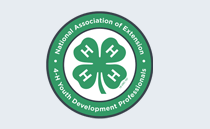Abstract
Youth development programs often provide young people with science learning experiences. We argue for reframing youth science learning from a focus on individual scientific literacy to an emphasis on collective scientific literacy—community science—to support young people in using science to address issues in their lives and communities. We provide examples from youth participatory action research (YPAR), one community science pedagogical approach. The YPAR model supports youth in deciding upon an environmental, economic, or social issue; designing and implementing research; and using their research findings to improve their community. We implemented YPAR with eight cohorts of youth over three years at five schools in Northern California. Using data generated from educator interviews and youth focus groups and analyzed with inductive thematic analysis, we explored what youth and educators reported about science engagement and learning. While YPAR projects offered opportunities for youth to strengthen scientific literacy, youth did not join a YPAR program because it was science education. Instead, as youth selected a personally meaningful topic, they began to see how they might affect community change. Engaging learners in relevant educational experiences situated in authentic community issues may improve motivation for deeper and sustained participation in science learning. Our YPAR example demonstrated an approach to learning STEM in youth development programs by ensuring relevancy and connection to community.
Recommended Citation
Worker, Steven M.; Neas, Sally; Espinoza, Dorina; Kok, Car Mun; and Smith, Martin
(2023)
"Youth Science Learning as/for Community Participation: Examples from Youth Participatory Action Research,"
Journal of Youth Development: Vol. 18:
Iss.
1, Article 3.
DOI: 10.34068/JYD.18.01.03
Available at:
https://tigerprints.clemson.edu/jyd/vol18/iss1/3
Included in
Child Psychology Commons, Civic and Community Engagement Commons, Community-Based Learning Commons, Developmental Psychology Commons, Leadership Studies Commons



